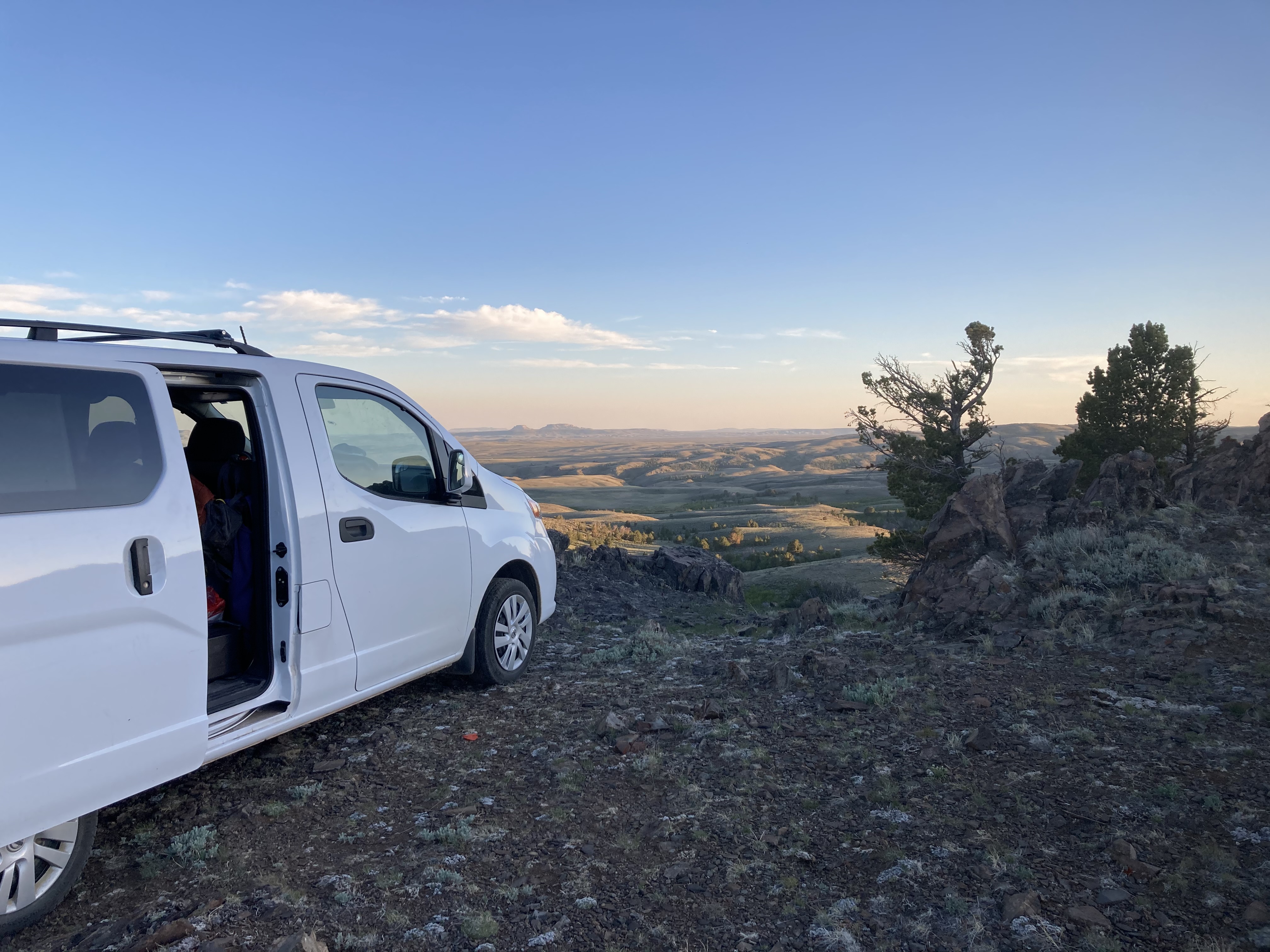On Travel
Contact
University of Arkansas System Division of Agriculture
Cooperative Extension Service
2301 S. University Ave.
Little Rock, AR 72204

On Travel
I love to travel. The ramble I’m currently on is the longest and least structured trip I’ve ever made so it will probably tell me something about myself. Am I a real traveler, like the guy I met last week who had been on the road for seven months sleeping in the back of a Prius. Or am I a weekend warrior unwilling to give up the comfort and security of home for the adventures and misadventures of the road. We shall see.
I’m a very disorganized traveler. I read a lot, but I don’t bother reading up on a places I am visiting. This slip-shod approach to travel means I must miss lots of interesting things, but I like the spontaneity of not over-planning. I see a town name that intrigues me, like Dead Dog, Wyoming, and off I go. Not much there, I can report.
I’m reading about, and in my typical disorganized fashion, traveling along the Oregon Trail. My guide book is John Unruh, Jr.’s “The Plains Across,” which uses primary sources to recount the challenges a quarter million Americans faced as they traveled from the United States to the future states of Oregon and California between 1840 and 1860. A scholarly tome that helps get me in the mood for turning in early.
Travel in my new Nissan minivan is easy, fast and comfortable. I average 70 miles an hour on good roads while the overlanders might have made 15 miles a day. Many of my miles are on dirt roads and I can attest to their dustiness. Put a couple dozen wagons, a hundred oxen to pull them and assorted horses, mules and people walking, and the overlanders must have consumed their body weight in dust.
My little NV-200 (the 200 is the number of cubic feet of cargo space) is tight and compact but inside I have a twin sized mattress setting atop a platform fitted with four drawers that open out the various doors. In fact, I’m writing this atop one of the drawers that pulls out far enough to give me a convenient desktop.
I’ve read all of the Jack Reacher books and enjoy the notion of traveling light - a toothbrush and his expired passport. I am not there and would not enjoy such a Spartan life. But, my little rig is far from glamping. I run my C-pap machine off of a rechargeable lithium ion battery pack that holds a two night charge. Recharge is either off solar panels or the van charging system.
Water is stored in five milk jugs. Bathroom provisions are sketchy and work well in the wilds where I spend most of my nights, but not so well in crowded campgrounds. Food choices I maker are probably not found anywhere on the food pyramid. I try to get one meal a day and then just make do with cereal, granola bars or whatever. A proper cup of coffee in the morning has been one of my biggest challenges, but I’m getting there.
Unruh tries to answer the question of why people would give up a settled and usually comfortable life for a four- to six-month journey across the wilds of middle and western America. Ultimately, he found no single reason people made the trip. Some traveled to start over, some traveled in hopes of finding things better where they were going, some for the adventure, some hoping to find riches and status, and some just got caught up in hype of the moment.
Like the overlanders, I have a number of reasons for hitting the road. I told my high school counselor I wanted to be a truck driver. She didn’t even listen and suggested a number of other alternatives. But just the act of driving, I find relaxing. Seeing new sights, new places, experiencing new things, and finding new plants along the roadways all interest me. And, being untethered from the real world has great appeal. I haven’t heard the news in over three weeks and yet the world goes on spinning, unaware of my ignorance.
